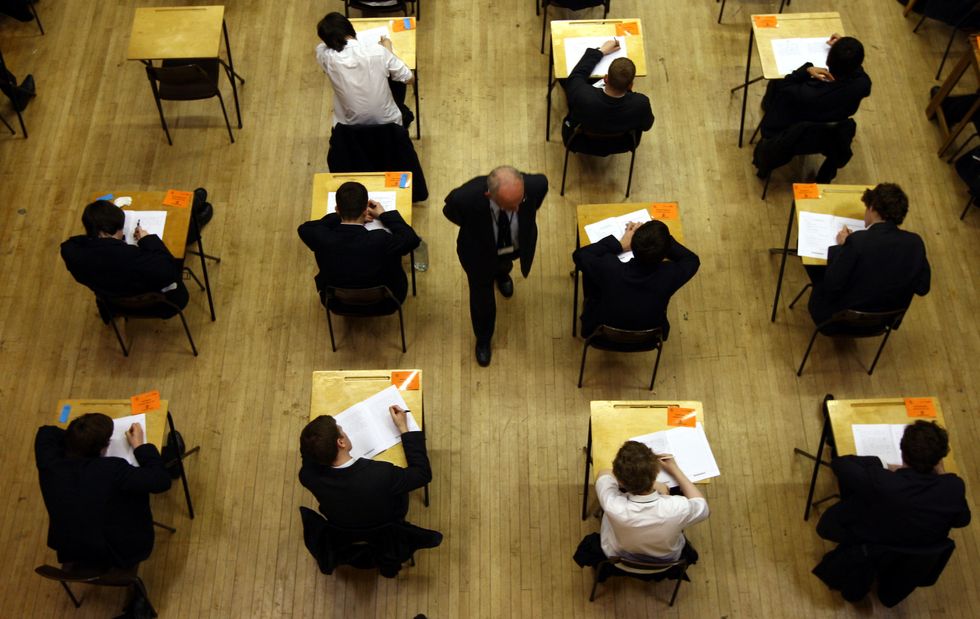Unaccompanied asylum-seeking children ‘over three years behind peers at GCSE’, suggests report

David Jones

Unaccompanied asylum-seeking children in England are on average more than three years behind other pupils by the time they sit GCSEs, a report suggests.
The attainment gap between asylum-seeking children who enter the UK separated from their parents and non-refugee children is estimated to be similar in size to the gap for pupils with special needs and disabilities who have the most severe needs, according to the Education Policy Institute (EPI).
It is “deeply concerning” that refugee and asylum-seeking pupils receive “very little support” from the Government compared to other vulnerable groups, the think tank said.
The working paper estimates the educational outcomes of asylum-seeking and refugee pupils in England.
Researchers at EPI developed a methodology that triangulates data from the National Pupil Database, published asylum and migration statistics and freedom of information (FOI) requests to the Home Office.
The analysis estimates that unaccompanied asylum-seeking children (UASC) in England in 2016/17 were on average 37.4 months behind non-migrant children across all GCSE subjects.
This group of pupils experience higher rates of fixed-period exclusions (7.1%), also known as suspensions, than non-migrant children (5.2%), while resettled refugee or asylum support children are estimated to be less likely to experience a suspension (4.4%), the report adds.
Jo Hutchinson, report author and a director at EPI, said: “For the very first time, our research has estimated the educational outcomes of refugee and asylum-seeking children in England.
“While these children have very large school attainment gaps and higher exclusion rates, they are often still invisible to the system when it comes to education.
“It is deeply concerning that the Government does not follow the progress of these pupils, and that they receive very little support compared to other highly vulnerable groups.
“We need to see the Government do far more to prioritise the needs of refugee and asylum-seeking pupils.”
The report suggests that there were just under 24,000 children under 18 years old in receipt of asylum support under Section 4 or Section 95 in England in December 2017.
There were an additional 4,560 UASC looked after by local authorities in England in March 2017 and a further 1,000 children aged 5-16 were resettled under schemes for designated refugees, it adds.
Paul Whiteman, general secretary of school leaders’ union NAHT, said: “Given the life experiences and the trauma many of these young people will have faced in their formative years, it is perhaps not surprising that this has an impact on their educational outcomes.
“However, this is not a gap that anyone should be prepared to accept. Without doubt, these are some of the most vulnerable young people in our schools and we need a system that fully supports them.”
Geoff Barton, general secretary of the Association of School and College Leaders (ASCL), said: “This report shines a much-needed light on the educational outcomes of a group of extremely vulnerable children.
“The huge gap it shows in their GCSE attainment compared to non-migrant children is not an easy problem to solve because they lack family support and stability, may not have a strong command of English, and may be suffering from psychological trauma.
“However, this report helps to provide greater understanding of the scale of the problem, and that is an important step forward in itself.
“It reinforces the need for sufficient government funding to enable schools, colleges, and local authority services to provide the most effective possible support for these young people, and for all vulnerable and disadvantaged children.”
A Department for Education spokesperson said: “Refugee or unaccompanied asylum-seeking children can be among the most vulnerable in society and many will require additional support to settle into their communities, including in their education.
“We provide significant investment to support pupils from disadvantaged backgrounds in school, including through increased Pupil Premium funding and the biggest uplift to school funding in a decade.
“Councils receive additional funding to help meet the educational needs of children in care, including unaccompanied minors, who also benefit from the support of a virtual school head.
“These help to raise standards for children in care and care leavers, and we are extending this support to students in post-16 education via a £3 million pilot.”